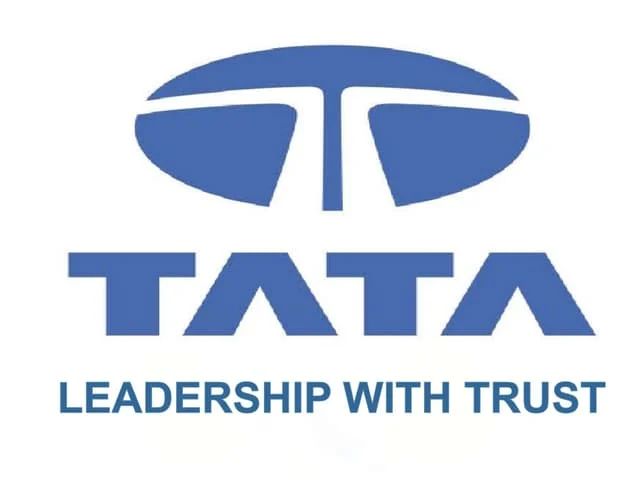Introduction to The Tata Group
The Tata Group, a name synonymous with trust and leadership, stands tall as one of the most respected and oldest conglomerates in India. Founded in 1868 by Jamsetji Tata, the group has expanded its footprint across the globe, setting benchmarks in various industries. The ethos of the Tata Group has always been rooted in integrity, ethics, and a commitment to the community. This article delves into the history, leadership, values, and diverse business operations of the Tata Group, highlighting why it continues to be a beacon of trust and innovation.

A Legacy of Leadership
Jamsetji Tata: The Visionary Founder
Jamsetji Tata, the founding father of the Tata Group, envisioned an industrialized India that would stand on the pillars of scientific knowledge and economic self-sufficiency. His pioneering spirit led to the establishment of India’s first steel plant, hydroelectric power plants, and educational institutions like the Indian Institute of Science. Jamsetji’s vision was not just confined to industrial growth but also encompassed a broader social purpose, aiming to improve the quality of life of the Indian populace.
The Tata Sons: Guardians of the Legacy
Tata Sons is the principal holding company of the Tata Group, holding a majority equity stake in the major Tata companies. Over the years, leadership at Tata Sons has been pivotal in steering the group towards sustainable growth and innovation. The chairpersons, from JRD Tata to Ratan Tata, and currently Natarajan Chandrasekaran, have upheld the founder’s vision while navigating the conglomerate through changing economic landscapes. Their leadership has ensured that the Tata Group remains a paragon of ethical business practices and corporate governance.
Core Values: The Foundation of Trust
Ethical Business Practices
The Tata Group’s commitment to ethical business practices is evident in its corporate governance policies. Transparency, accountability, and fairness are the cornerstones of the group’s operations. This unwavering adherence to ethics has earned the Tata Group the trust of stakeholders globally, making it a preferred partner for governments, businesses, and communities alike.
Corporate Social Responsibility (CSR)
The Tata Group has always believed in giving back to society. This is reflected in its extensive CSR initiatives which focus on education, healthcare, rural development, and environmental sustainability. Through various trusts and foundations, such as the Tata Trusts and Tata Education and Development Trust, the group has significantly contributed to the upliftment of marginalized communities and the overall socio-economic development of the nation.
Diverse Business Portfolio
Steel: Building the Nation
Tata Steel, established in 1907, is one of the world’s leading steel manufacturers. It has played a crucial role in building India’s infrastructure, supplying steel for projects ranging from railways to skyscrapers. The company’s commitment to innovation and sustainability has also set new benchmarks in the steel industry, ensuring minimal environmental impact and maximum operational efficiency.

Automobiles: Driving Innovation
Tata Motors, the automotive arm of the Tata Group, is a pioneer in the Indian automobile industry. From launching India’s first indigenous car, the Tata Indica, to developing electric vehicles, Tata Motors has consistently pushed the boundaries of innovation. The company’s acquisition of Jaguar Land Rover has also positioned it as a significant player in the global luxury car market.
Information Technology: Empowering Businesses
Tata Consultancy Services (TCS), a global leader in IT services, consulting, and business solutions, has been at the forefront of the digital transformation wave. TCS’s cutting-edge solutions and services have empowered businesses worldwide to harness the power of technology for growth and efficiency. The company’s emphasis on research and development has also led to the creation of innovative solutions that address complex business challenges.
Telecommunications: Connecting the World
Tata Communications has been instrumental in bridging the digital divide by providing robust telecommunications infrastructure and services. Its global network, which includes the world’s largest wholly-owned subsea fiber network, ensures seamless connectivity and data transfer across continents. The company’s commitment to innovation is evident in its initiatives to develop next-generation communication solutions.
Hospitality: Redefining Luxury
The Tata Group’s foray into the hospitality sector began with the establishment of The Taj Mahal Palace in Mumbai in 1903. Today, Indian Hotels Company Limited (IHCL) operates a chain of luxury hotels under the Taj, Vivanta, and Ginger brands. Known for their impeccable service and luxurious ambiance, these hotels have redefined the standards of hospitality in India and abroad.
Consumer Goods: Enhancing Everyday Life
Tata Consumer Products, formed through the merger of Tata Global Beverages and Tata Chemicals’ consumer products business, offers a wide range of products that cater to everyday needs. From tea and coffee to salt and pulses, the company’s brands like Tata Tea, Tetley, and Tata Salt are household names. The focus on quality and innovation ensures that these products consistently meet consumer expectations.
Energy: Powering Progress
Tata Power, one of India’s largest integrated power companies, has been a pioneer in the energy sector. The company is committed to providing clean and sustainable energy solutions, with significant investments in renewable energy projects. Tata Power’s initiatives in solar, wind, and hydroelectric power generation underscore its commitment to reducing carbon footprints and promoting environmental sustainability.
Chemicals: Driving Industrial Growth
Tata Chemicals, a global company with interests in chemicals, crop protection, and specialty chemicals, plays a vital role in industrial growth. The company’s innovative solutions in soda ash, salt, and fertilizers have supported various industries and contributed to agricultural productivity. Tata Chemicals’ focus on sustainable practices ensures that its operations have minimal environmental impact.
Global Presence: Expanding Horizons
The Tata Group’s global footprint spans over 100 countries across six continents. The group’s international expansion strategy is driven by a commitment to local markets and a focus on leveraging global opportunities. Key acquisitions, such as Jaguar Land Rover and Tetley, have not only expanded the group’s product portfolio but also enhanced its brand value on the global stage.
Strategic Acquisitions
Strategic acquisitions have played a pivotal role in the Tata Group’s global expansion. The acquisition of Tetley in 2000 marked Tata Tea’s entry into the global tea market, making it one of the world’s largest tea companies. Similarly, the acquisition of Corus in 2007 and Jaguar Land Rover in 2008 significantly boosted Tata Steel and Tata Motors’ global presence. These acquisitions have enabled the group to diversify its offerings and gain a competitive edge in international markets.
Innovation and R&D
Innovation is at the heart of the Tata Group’s operations. The group’s emphasis on research and development has led to the creation of groundbreaking products and solutions. Tata Motors’ electric vehicles, TCS’s AI and machine learning solutions, and Tata Steel’s advanced steel products are just a few examples of how innovation drives the group’s success. The establishment of Tata Research Development and Design Centre (TRDDC) and collaborations with global research institutions further underscore the group’s commitment to innovation.
Sustainable Development: A Commitment to the Future
Environmental Initiatives
The Tata Group’s commitment to sustainability is reflected in its numerous environmental initiatives. Tata Steel’s efforts to reduce carbon emissions, Tata Power’s investment in renewable energy, and Tata Chemicals’ sustainable agricultural practices are all testament to the group’s dedication to environmental conservation. The group also actively participates in global sustainability forums and aligns its operations with international environmental standards.
Social Impact
The Tata Group’s social impact initiatives aim to improve the quality of life of communities and drive inclusive growth. Education, healthcare, and livelihood programs are key focus areas of the group’s CSR activities. The Tata Trusts, one of India’s oldest philanthropic organizations, play a crucial role in implementing these initiatives. Projects like Tata Water Mission, which aims to provide clean drinking water, and Tata STRIVE, which focuses on skill development, have positively impacted millions of lives.
The Tata Group’s Enduring Legacy
The Tata Group’s journey from a small trading firm to a global conglomerate is a testament to its visionary leadership, unwavering commitment to ethical practices, and relentless pursuit of excellence. The group’s core values of trust, integrity, and social responsibility continue to guide its operations and drive its success. As the Tata Group looks to the future, it remains steadfast in its mission to create long-term value for its stakeholders and contribute to the socio-economic development of the communities it serves.
